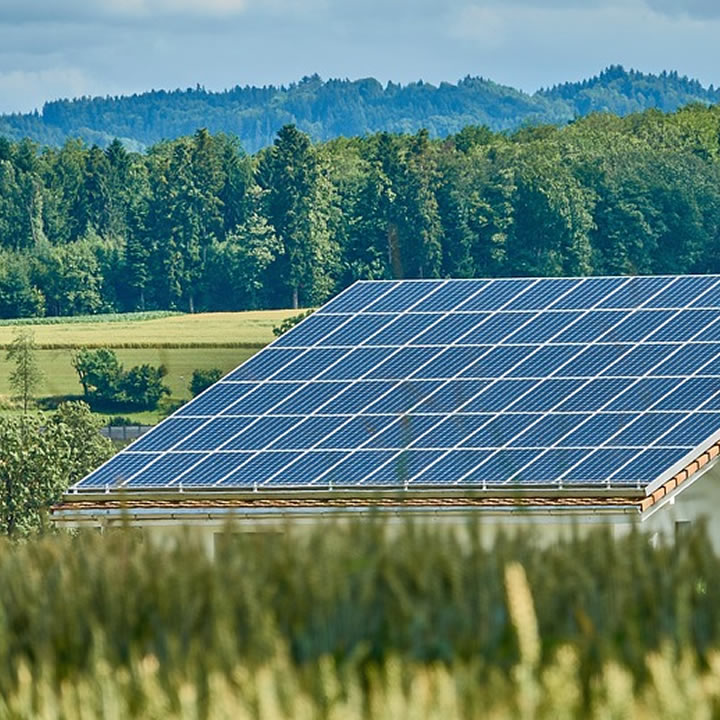Australia’s solar panel revolution surpasses any other country. Today, more than 30% of homes have rooftop solar systems installations, making it one of the top countries with the highest solar penetration in the world.
However, even if sunny weather conditions and the increasing electricity bills make it a cost-effective solution, it doesn’t mean the shift will be easy. Before installing residential solar systems, you need to understand various aspects of solar installation.
To help you with it, we have curated this informative guide on residential solar panels.
Read this further if you are considering solar panels for your home.
Features to consider when choosing solar panels for home
The market is filled with numerous solar brands, making it difficult to choose the right one for your home. But there are a few factors that you can look out for when considering a residential solar system.
1. Quality
A solar panel system is a long-time investment.
So it’s essential to choose high-quality panels that offer you effective results for a long time. One of the easiest ways to ensure system quality is by selecting a brand that offers tier-1 solar panels.
It indicates that the manufacturer uses the best silicon, ensuring higher energy conversion and durability.
2. Reliable brand and installer
Whenever you consider any solar panel, always look for the reliability of the brand and installer. Give preference to the brand holding years of experience and offer CEC (Clean Energy Council) Certified PV solar modules, ensuring safety and quality.
Similarly, check the CEC Accreditation of the installer and pick the one who offers local support.
3. Durability
A good solar panel comes with higher durability, saving you from regular expenses on maintenance and replacement.
So when you consider any solar panel, choose the one that will withstand the impact of falling objects like branches or leaves and extreme weather conditions such as heavy snowfall or rainfall.
4. Warranty Period
Whenever you look for any solar system, always get the one with a good warranty period. A reliable solar system includes:
- Performance Warranty: 25+ years, with at least 80% performance on the stated efficiency.
- Product Warranty: 10+ years by the manufacturers.
- Installation Warranty: 2-5 years from the installers.
- Inverter Warranty: 5+ years on standard and 10+ years on premium inverters.
5. Higher Efficiency
A solar system’s performance relies on the panel’s efficiency in absorbing sunlight and converting it into usable energy.
The higher the conversion, the better. Therefore look for solar panels with 12-21% efficiency. It ensures optimum performance with low sunlight and even charges your inverters for later use.
6. Solar Batteries
A solar battery helps you to store excess energy generated by solar panels, enabling you to use it at night or during an emergency.
So while installing solar panels, consider if you need a lot of electricity during the evenings and nights. Consider if you use electricity from the grid without worrying about electricity bills.
It will help you determine if you need solar batteries or not and if yes, then in what capacity.
7. Rebates and Feed-in Tariffs
To make your solar installation more affordable, consider rebates and feed-in tariffs of your state.
- Rebates: The government provides small-scale technology certificates to households on energy generation through PV systems known as rebates. You can sell these generated STC certifications and earn money for several years.
- Feed-in Tariffs: Solar retailers pay the homeowners a rate for sending excess energy back to the grid, known as Feed-in Tariffs or rates.
Perks of installing solar panels at home
- Reduce electricity bills: Most residential solar panels in Australia are grid-connected. It enables you to reduce electric bills by using solar power during the day and grid electricity at night.
- Become energy independent: Getting off-grid solar panels with solar batteries helps you to store excess energy for later usage. It will reduce your reliance on grid power and make you energy-independent.
- Protect Environment: Installing solar panels will reduce greenhouse gas emissions, leading to lesser pollution and a healthier environment.
- Earn Money: If you install high-quality panels with solar batteries, you can generate extra solar energy and sell it back to the grid.
- Protect roofs and reduce the temperature: Installing rooftop solar panels protects your roof from debris and extreme weather conditions like rain, snow, and high temperature, keeping the surface of the home cooler during summer.
How to maintain residential solar panels?
Nowadays, solar panels require little to no maintenance. You only need to ensure that it remains free from dust, debris, or damage that can harm the panel’s performance. You can maintain solar panels by:
- Occasional Cleaning: Removing dust, debris, and snow ensure optimum efficiency.
- Annual Inspection: Professional installers will inspect the panels and ensure the safety and efficiency of the system.
- Maintenance Appointments: If you notice a reduction in efficiency and any issue with solar panels, you can book maintenance appointments with a professional.
How much do residential solar systems cost?
Residential solar panels come at different prices. Generally, a 6kW solar system cost between $4,000-$6000 in most Australian cities. However, the actual cost relies on various factors like the size of the system, installation expenses, rebates, or tariffs of your state.
So to know the exact price, consult a reliable installer and ask for quotations. Solar panels are a long time investment. So before you buy solar panels online, consider all the top brands like Sunpower, Trina, LG, etc., and the factors we mentioned in this mini guide.

